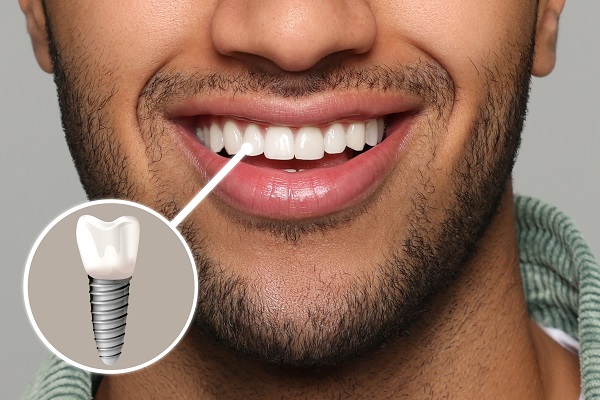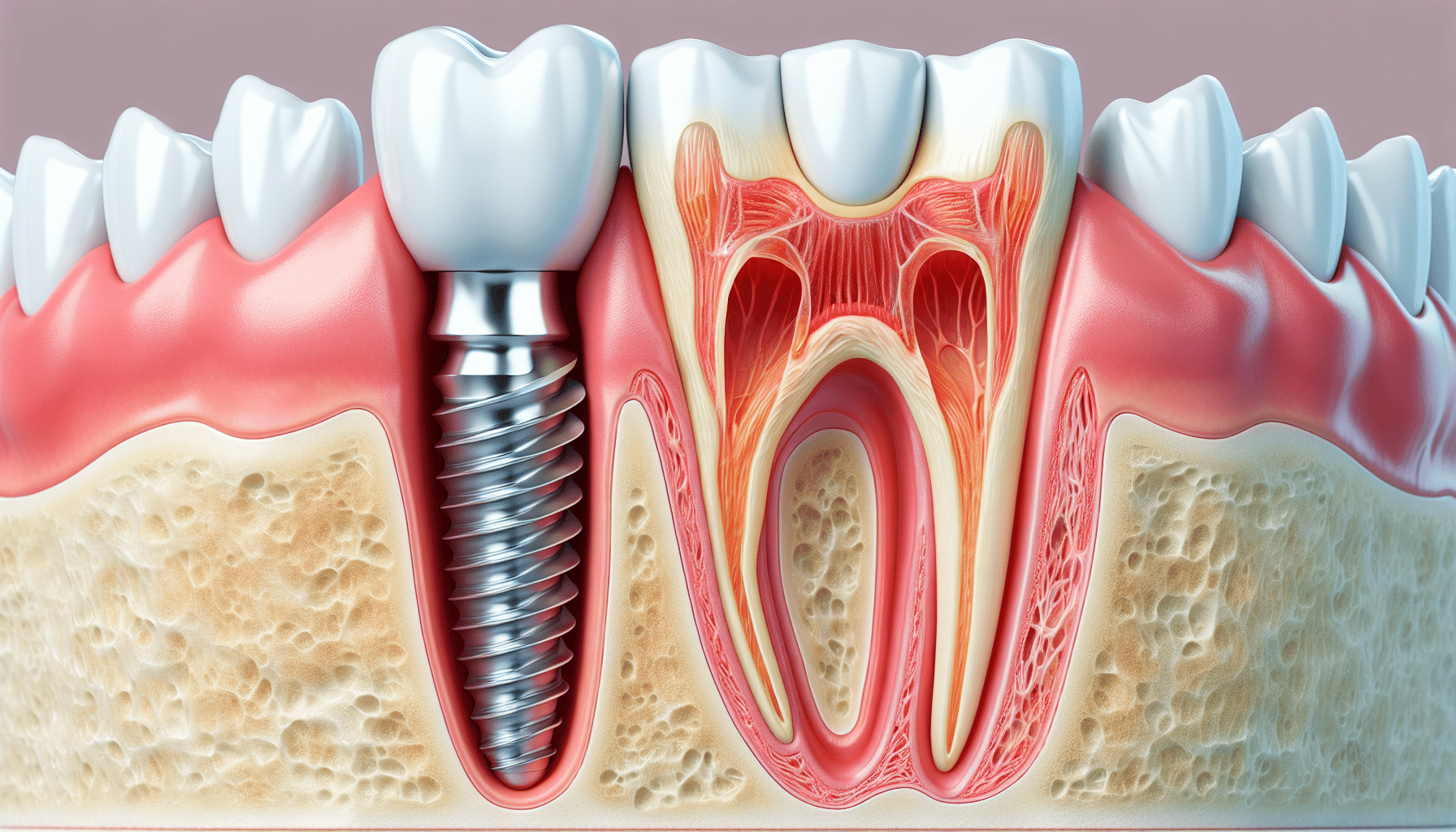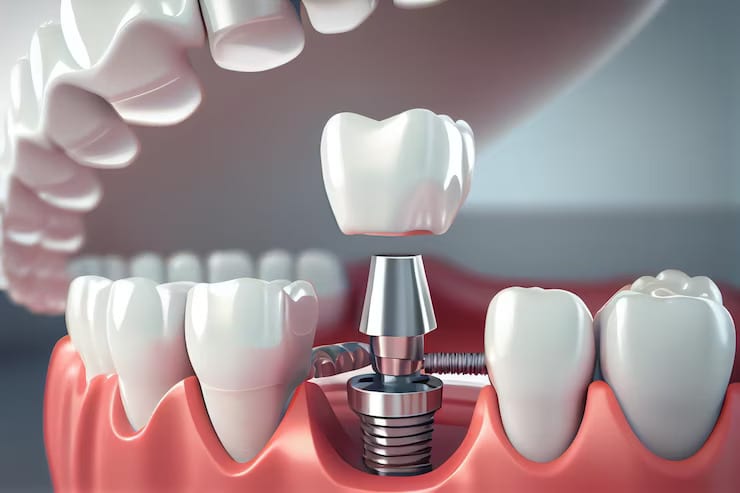Dental Clinic Johnstown OH Dental Implant Procedure: What You Need to Know Before Surgery
Dental Clinic Johnstown OH Dental Implant Procedure: What You Need to Know Before Surgery
Blog Article
Mono Dental Implants Galena OH The Advantages, Risks, and Insurance for Dental Implants
Dental implants have emerged as a popular alternative for people seeking a long-term answer to tooth loss. One essential aspect of understanding dental implants involves their effect on adjacent teeth. This is particularly essential for guaranteeing the health and longevity of the entire dental structure.
When a dental implant is positioned, it mimics the operate of a natural tooth root. By doing so, it helps maintain the integrity of the encircling bone structure. Natural teeth depend on a balanced, interconnected system for help, and dental implants can contribute positively to that dynamic. The stability provided by the implant allows for higher distribution of bite forces, which might prevent undue stress on adjacent teeth.
Dental Care Associate Alexandria OH Dental Implant Procedure: What You Need to Know Before Surgery
In instances where a tooth is missing, the neighboring teeth may shift into the vacant space. This shifting can result in misalignment and numerous other problems. By putting a dental implant, the danger of this shifting is reduced, as the implant acts as a placeholder that preserves the natural alignment of surrounding teeth. This preventive impact is crucial for long-term oral health and performance.
Another important consideration is bone loss. When a tooth is lost, the jawbone within the space can start to deteriorate as a outcome of a scarcity of stimulation. Dental implants assist prevent this bone loss by offering the required stimulation to the jawbone, very like a natural tooth root would. This preservation of bone not solely supports the implant itself but also contributes to the steadiness of adjacent teeth.
The kind of fabric used in dental implants, typically titanium, has a unique property of osseointegration, which means it fuses with the bone over time. This integration provides a sturdy basis for the bogus tooth whereas ensuring that the implant doesn’t negatively have an effect on surrounding structures. As the implant integrates, it creates an setting that contributes positively to the health of the adjacent teeth.

Regular dental check-ups play an essential role in monitoring the influence of dental implants on adjacent teeth. Professional assessments may help determine any issues that will arise, ensuring immediate therapy and maintaining the health of the entire dental arch. These evaluations might embody X-rays to verify for bone density and the general condition of the implant and surrounding teeth.
Dentist Alexandria OH Are Dental Implants Permanent? What You Should Know
Oral hygiene practices are vital for people with dental implants. Proper brushing and flossing habits not solely contribute to the longevity of the implant but in addition make sure that adjacent teeth remain wholesome. Food particles and plaque that accumulate around the implant may cause problems, including peri-implantitis, an inflammatory condition that can affect surrounding teeth and tissues.
The positioning of dental implants can influence the health of adjacent teeth. If an implant is placed at an angle or not properly aligned, it could lead to increased pressure on neighboring teeth. This misalignment could cause put on and tear on adjacent enamel, doubtlessly resulting in cavities or other dental issues. Therefore, the skill and expertise of the dentist performing the implant procedure are paramount in attaining a successful outcome.
In some cases, extra procedures may be necessary to arrange the encompassing area for an implant. Bone grafting or sinus lifts can help create a greater environment for the implant. While these procedures are geared toward enhancing the site for the implant, they also serve to protect the health of adjacent teeth by making a more stable foundation.
Dental Clinic Hartford OH Dental Implant Types: Choosing the Right Solution

As dental technology evolves, advancements in implant methods lead to better outcomes. Improved imaging techniques and computer-aided design enable for more precise placements that minimize risk to adjacent teeth. With these advancements, the probability of problems that might come up from improperly placed implants diminishes considerably.
Post-operative care also performs a crucial function in making certain that adjacent teeth remain unaffected. Patients must adhere to the dentist's instructions concerning diet, oral hygiene, and follow-up visits. Neglecting these tips may lead to problems that impact not solely the implant but also the neighboring teeth.
Dentist Alexandria OH Dental Implant Types: Choosing the Right Solution
In conclusion, dental implants, when placed accurately and cared for correctly, have the potential to reinforce the health of adjacent teeth rather than detract from it. They preserve alignment, stimulate bone growth, and supply a secure basis that helps the complete dental structure. Understanding how dental implants have an result on adjacent teeth emphasizes their importance as a long-term tooth replacement solution. With continuous developments in know-how and methods, the integration of dental implants into restorative dentistry is turning into increasingly profitable, ensuring wholesome and functional smiles for years to come.

- Dental implants prevent adjacent teeth from shifting into the gap created by a missing tooth, helping to hold up proper alignment within the mouth.
- The rebuilding of the jawbone by way of an implant can stimulate surrounding teeth and keep them wholesome by offering essential bone density that might in any other case diminish.
- Adjacent teeth profit from the stabilization that dental implants present, decreasing the risk of damage and tear from misalignment during chewing.
- Implants can protect adjacent teeth by acting as a framework, which can distribute chunk forces evenly across the dental arch as a substitute of inserting undue stress on neighboring teeth.
- When placed accurately, dental implants reduce the risk of gum disease which can affect adjacent teeth by sustaining a clean and healthy gum line.
- The presence of an implant can facilitate an improved oral hygiene routine, because it eliminates the necessity for bridgework that could trap meals particles around adjacent teeth.
- Regular dental check-ups can reveal how properly the implant integrates with surrounding buildings, guaranteeing ongoing health for adjacent teeth.
- Implants can prevent the natural strategy of bone resorption that occurs after tooth loss, positively impacting the steadiness and longevity of adjacent teeth.
- The use of dental implants may scale back the need for extra invasive procedures sooner or later, providing a long-term solution that maintains the structure of the entire dental arch.
- Successful integration of an implant into the dental arch enhances general oral function, often resulting in improved confidence and oral health for adjacent teeth.undefinedHow do dental implants affect adjacent teeth?
What impact do dental implants have on the alignment of adjacent teeth?
Dental implants usually prevent the shifting of adjacent teeth, serving to to take care of correct alignment. This stability can cut back the chance of developing chunk points over time.
Can dental implants cause harm to nearby teeth?
When positioned correctly by a certified professional, dental implants shouldn't injury adjacent teeth - Dentists Granville OH. However, improper placement or inadequate planning may result in issues
Dental Clinic Alexandria OH Dental Implant Services: Find the Best in Your Area
Do dental implants require any special care Continued regarding adjacent teeth?
Maintaining good oral hygiene is crucial. Surrounding teeth must be brushed and flossed often, and routine dental check-ups will help make sure that both the implants and adjacent teeth remain wholesome.

Will dental implants influence the health of my surrounding see this site teeth?
Dental implants can improve the health of surrounding teeth by distributing bite forces evenly, reducing put on and tear. Additionally, they will prevent bone loss in the jaw, which might have an effect on adjacent teeth.
Dentist Pataskala OH Dental Implants: Services and Expertise
Are there any long-term results of dental implants on close by teeth?
Long-term, dental implants may help protect the health of adjacent teeth by stopping shifting and potential gum issues, ultimately contributing to raised oral health overall. - Orthodontics Alexandria OH
Can gum problems arise around adjacent teeth after getting implants?
If correct dental care is uncared for, gum issues might develop round both the implants and adjacent teeth. Following post-operative care instructions is important to minimize these risks.
Mono Implants Sunbury OH Understanding the Cost of Dental Implants (2024 Edition)
How do dental implants compare to bridges by method of adjacent teeth?
Dental implants are typically useful as they don’t require alteration of adjacent teeth, in contrast to bridges, which necessitate reshaping of close by teeth for support. (Orthodontics Condit OH)
Can I nonetheless get helpful hints cavities in adjacent teeth if I even have dental implants?
Yes, adjacent teeth can nonetheless develop cavities if not properly cared for. Dental implants themselves can't get cavities, however they require vigilant hygiene practices to guard surrounding natural teeth.
What is the success rate of dental implants in relation to surrounding teeth?
The success rate of dental implants is high, however it largely is dependent upon the standard of the process and ongoing care. Well-maintained implants typically lead to higher outcomes for adjacent teeth as well.